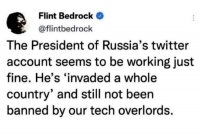Reynolds: The more we talk, the more we’re using World War II analogies. There are people who are saying we’re on the brink of a World War III.
Hill: We’re already in it. We have been for some time. We keep thinking of World War I, World War II as these huge great big set pieces, but World War II was a consequence of World War I. And we had an interwar period between them. And in a way, we had that again after the Cold War. Many of the things that we’re talking about here have their roots in the carving up of the Austro-Hungarian Empire and the Russian Empire at the end of World War I. At the end of World War II, we had another reconfiguration and some of the issues that we have been dealing with recently go back to that immediate post-war period. We’ve had war in Syria, which is in part the consequence of the collapse of the Ottoman Empire, same with Iraq and Kuwait.
All of the conflicts that we’re seeing have roots in those earlier conflicts. We are already in a hot war over Ukraine, which started in 2014. People shouldn’t delude themselves into thinking that we’re just on the brink of something. We’ve been well and truly in it for quite a long period of time.
But this is also a full-spectrum information war, and what happens in a Russian “all-of-society” war, you soften up the enemy. You get the
Tucker Carlsons and
Donald Trumps doing your job for you. The fact that Putin managed to persuade Trump that Ukraine belongs to Russia, and that Trump would be willing to give up Ukraine without any kind of fight, that’s a major success for Putin’s information war. I mean he has got swathes of the Republican Party — and not just them, some on the left, as well as on the right — masses of the U.S. public saying, “Good on you, Vladimir Putin,” or blaming NATO, or blaming the U.S. for this outcome. This is exactly what a Russian information war and psychological operation is geared towards. He’s been carefully seeding this terrain as well. We’ve been at war, for a very long time. I’ve been saying this for years.




